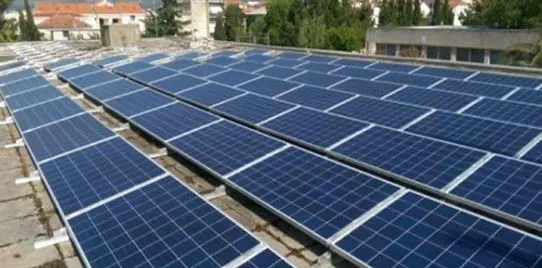Generation

Firm moves to improve renewable energy advancement in Nigeria

A firm, Royal Power and Energy, has identified solar energy as a stabilizing force as Nigeria’s economy continues to battle unstable exchange rates.
The firm argued that “In the last 15 years, the per-watt price of solar power has dropped significantly, making renewable energy a more viable alternative to traditional power sources.”
This idea was the central focus of discussions at a high-level media parley hosted by Royal Power and Energy Limited at an event held in Lagos.
Speaking at the event on Tuesday, Adewale Odugbesan, the Chief Executive Officer of Royal Power and Energy Limited, highlighted the remarkable cost reduction in solar technology, noting that global prices have fallen drastically despite naira volatility.
“In 2010, solar panels cost around $3 per watt; today, the prices have dropped significantly. This means that despite the devaluation of the naira, the affordability of solar energy has significantly improved, making it a viable alternative to traditional power sources,” Odugbesan stated.
The discussions at the parley underscored how the sharp drop in solar technology costs has outpaced the rate of naira devaluation, presenting an unprecedented opportunity for businesses and households to invest in renewable energy solutions. Mr. Odugbesan highlighted that the per-watt cost of running on solar is now significantly cheaper than relying on diesel generators or electricity from distribution companies.
Beyond pricing, Odugbesan also praised the Nigerian government’s recent policy adjustments aimed at encouraging solar adoption.
“The government has structured incentives such as relatively low import duties on solar components—excluding batteries—which are essential in sustaining the momentum of the sector,” he explained.
A key regulatory shift discussed was the removal of the mandatory grid connection requirement for businesses generating over 1 megawatt of solar power. Previously, companies exceeding this threshold were required to feed power into the national grid, creating investment bottlenecks.
“With this policy change, businesses can now distribute power within their states independently, eliminating a significant barrier to investment and improving energy access across Nigeria,” Odugbesan added.
While the outlook for solar energy adoption remains bright, Odugbesan acknowledged macroeconomic challenges such as exchange rate volatility and workforce migration, which could slow progress if left unaddressed. He further commended the recent performance of the naira against the dollar, noting that the currency has shown signs of stability and improvement over the last few months, which is a positive step forward for the economy.
“Businesses need a stable, predictable economy to plan long-term investments. While the volatility of the naira and shifting economic policies have posed challenges, the recent stability and improvement in the currency’s value are encouraging signs. Additionally, we must address the issue of talent migration, which is draining critical expertise from the sector,” he emphasized.
The discussions also explored energy efficiency strategies, the need for stronger public-private partnerships to bridge infrastructure gaps, and Royal Power and Energy Limited’s ongoing commitment to leveraging advanced technology to enhance power accessibility in Nigeria.
The event ended with an interactive Q&A session with journalists, reinforcing the company’s role as a thought leader in the renewable energy space and its commitment to driving Nigeria’s transition to affordable, sustainable power solutions.












